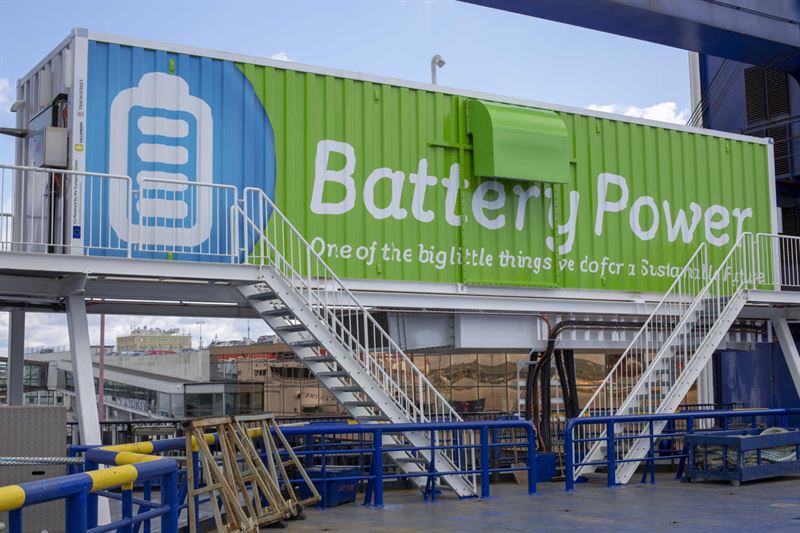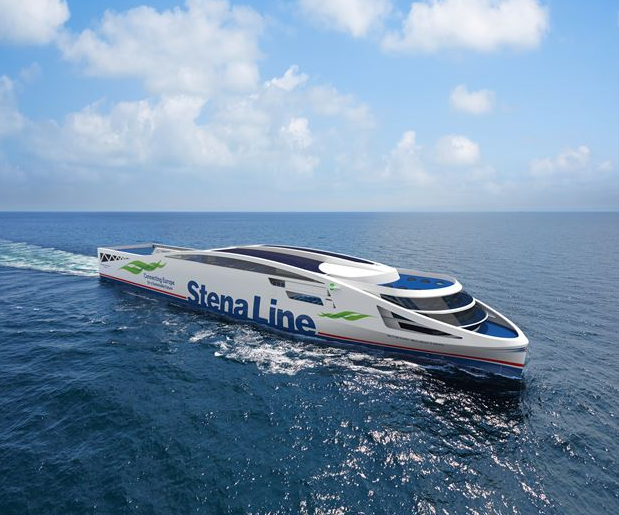

Swedish Stena Group is developing a solution to use recycled batteries in charging stations at ports.
The project is targeting the development of a new type of energy storage, similar to very large powerbanks, which will be essential for the quick charging of electric ferries in the future.
The core of the endeavor is to map and evaluate opportunities to reuse lithium-ion batteries from the transport and automotive industry for energy storage in ports – to charge electric ferries, for example.
The collaboration includes several Stena companies – Batteryloop, Stena Recycling, Stena Rederi and Stena Line – the ports of Gothenburg and Kiel and the accreditation company DNV GL.
Batteryloop is a subsidiary of the Stena Recycling Group.
The company has gained significant know-how in electrification, including in the recycling of used batteries from the automotive industry. A global collaboration agreement was recently signed with Volvo Buses, for the reuse of batteries from its electric vehicles.
“New solutions are being designed to meet the charging requirements of the transport sector of the future, especially for shipping where vessels are starting to switch to electric power. Rapidly charging a large ferry, for example, requires a huge amount of energy in a short time and it’s not certain that the electricity grid will be able to deliver it. Local energy stores at ports could offer a great solution to this problem”, says Rasmus Bergström, Managing Director of Batteryloop.
The project will be carried out over two years and be part-financed by INEA, the EU’s Innovation and Networks Executive Agency.
“One thing is sure, batteries are here to stay. In order to conserve natural resources and make battery recycling sustainable, we need to do everything we can to use batteries for as long as possible. Our conclusion is that many batteries can have a second life as energy storage. If we can find solutions that will scale-up and work in ports, we’ll have a win-win situation in many ways”, says Rasmus Bergström.
Going net zero
Stena Line is a strong supporter of battery power as an energy source for ships.
In 2018, Stena Line began invested in the battery-powered ferry Stena Jutlandica, which uses battery power to drive the bow thrusters that steer the vessel into port.

The ferry operator also wants to launch a fully battery-powered vessel before 2030.
Stena Elektra is a lightweight battery-powered vessel with the capacity to run approximately 50 nautical miles on batteries only, i.e. between Gothenburg or Fredrikshaven.
The project forms part of the company’s strategy to reach zero emissions by 2050.
“This is an important milestone in the electrification of shipping. Our future project, Stena Elektra – a fully electric ferry – is already on the drawing board. In order to succeed, we need to solve the issue of how to quickly charge a ferry. Energy storage at ports using recycled batteries, is a very interesting and sustainable alternative for the future”, says Per Wimby, project manager for electrification at Stena Teknik.
Quayside energy storage can also be used as an alternative power source for vessels in port, which will reduce greenhouse gas emissions.
Stena Line revealed in its sustainability report for 2019 that it has cut its total CO2 emissions by 1.7 %, corresponding to 24,000 tonnes of CO2 in total.
The report further indicates that ferry owners and operator managed to reduce its CO2 emissions per transported ton freight and passenger vehicles onboard its vessels by 3.6%.
According to Erik Lewenhaupt, Head of Sustainability at Stena Line, the company is working in parallel with reducing fuel consumption, and emissions to sea and air and at the same time exploring and evaluating the fuels for the future.
“We are currently involved in several projects with alternative fuels and propulsion, including the world’s first methanol powered vessel and a battery project with the aim of launching a fully battery-powered vessel before 2030,” he said back in June.
The post Stena to use large ‘powerbanks’ in charging stations at ports appeared first on Offshore Energy.
